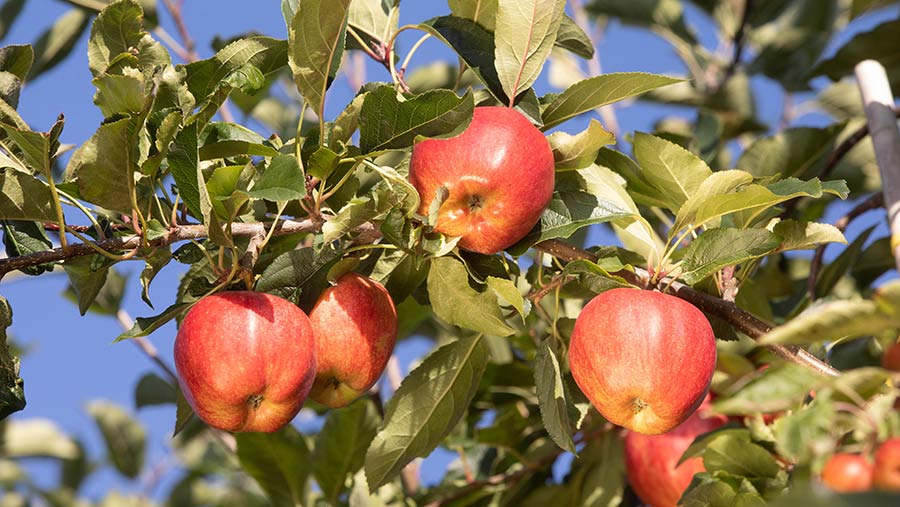House of Lords condemns government ‘neglect’ of horticulture sector
 © Tim Scrivener
© Tim Scrivener UK food security is being placed in jeopardy by the government’s lack of interest in the fruit and vegetable sectors, with producers struggling to make a return and the industry failing to attract new talent.
Those are among the conclusions of a new House of Lords report into UK horticulture, which says the industry has been “under-prioritised” and “unappreciated” by policymakers.
See also: Horticulture sector warns House of Lords of market failure
The Horticultural Sector Committee was established in February to investigate the challenges facing the horticulture sector, and to find ways to help it achieve its full potential.
Among the many problems identified were poor ministerial oversight from Defra, “relentless” competition between supermarkets to keep prices low, and the long-term skills and education gap, leading to shortages of labour.
Lord Redesdale, committee chairman, said: “In the face of a cost-of-living crisis, supermarkets are battling to keep prices down, but this squeezes UK growers out of the market in favour of cheaper imports. This fundamentally threatens food security.”
Potential
Yet horticulture is seen to have “extraordinary potential”, both to help agriculture deliver on net zero and to reduce the reliance on imports.
The report therefore makes a number of recommendations, including that the government makes good on its promise to publish a horticulture strategy for England – a policy objective that was downgraded earlier this year – and step up efforts to secure a reliable workforce.
Lord Redesdale also urged Defra to “get on” with its promised review of fairness in the horticulture supply chain, and to do more to support long-term research and development, especially into robotics and automation.
Response
The report has been welcomed by grower representatives, who believe horticulture has been ignored by government.
Jack Ward, chief executive of the British Growers Association, said: “For the past 10 years, we have seen a haemorrhaging of growers, a haemorrhaging of capacity, and we’re not far short of seeing a haemorrhaging of fresh produce production.”
“Given the complete imbalance between what we import and what we export, there is a real need to do something to ensure we still have a fresh produce capability for the next decade.
“Horticulture is such an important part of our food security. We saw last spring just how fragile our supply chain can be when things go wrong.”
Mr Ward said he endorsed the Horticultural Sector Committee’s recommendations, and expressed frustration that, despite some positive government statements, there is still huge uncertainty – for example, around the role of producer organisations and any future ban on peat.
Squeeze
NFU president Minette Batters saved her criticism for retailers, who she said had put a constant squeeze on growers, with some horticulture businesses operating at less than 1% profit margins.
Speaking at the 90th annual National Fruit Show in Kent, she said: “If we cannot change the culture of retailers we will continue to lose horticultural production.
“It has to change if we’re going to deliver on food security and have the horticultural revolution that we all know needs to happen.”
A Defra spokesperson said: “The domestic horticulture sector is crucial to the resilience of our food system and an important part of the wider economy.
“We are hard at work supporting the sector with the challenges they face – which is why we have provided 45,000 seasonal workers to help pick crops next year, and why at the Farm to Fork summit we announced a comprehensive range of measures to support this essential industry, including our forthcoming consultation on the fairness in the horticulture supply chain.”

